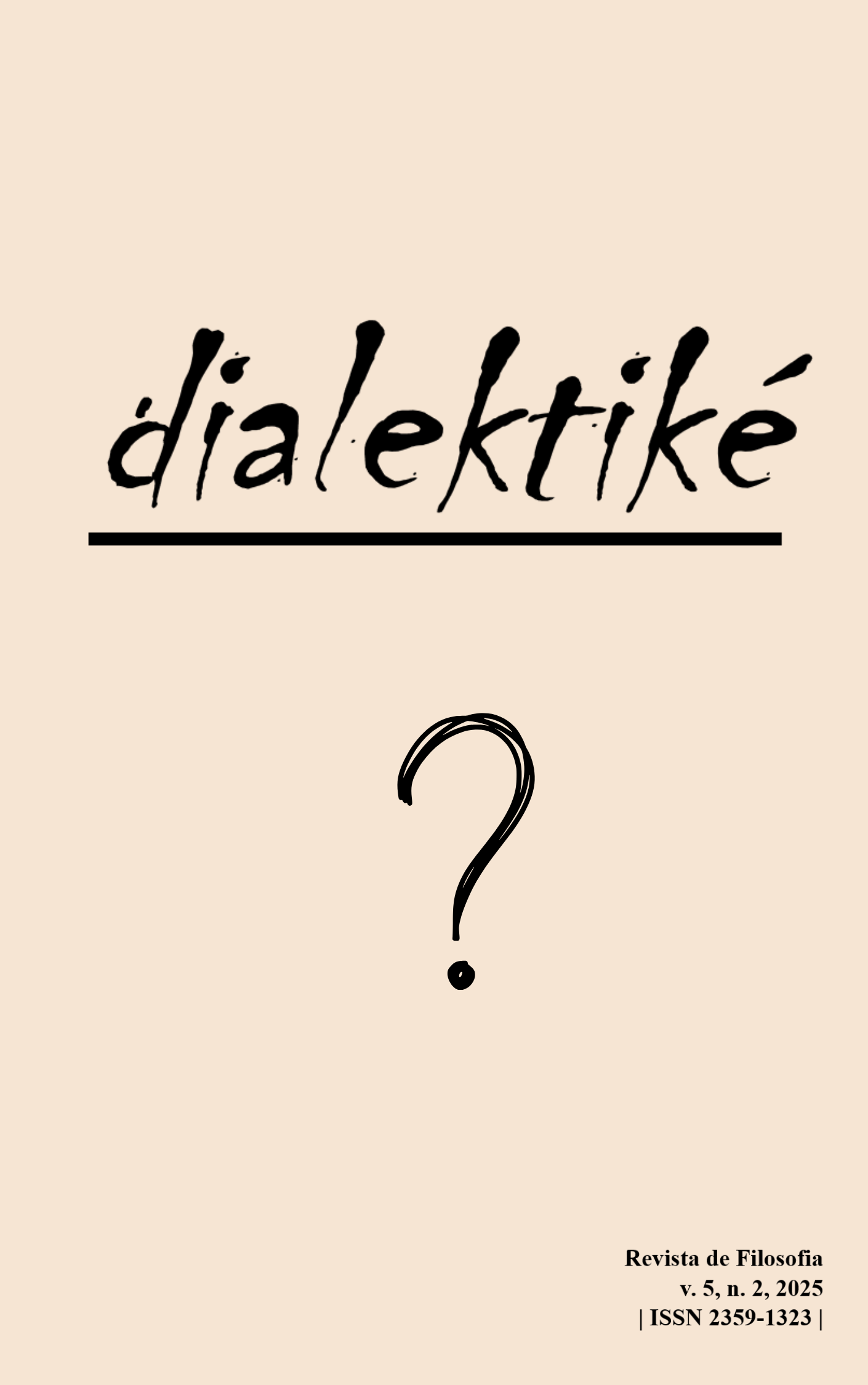O PRINCÍPIO RESPONSABILIDADE DE HANS JONAS NA FORMAÇÃO DOS CURSOS TÉCNICOS EM MEIO AMBIENTE DO IFRN
UM ESTUDO DA ÉTICA DA RESPONSABILIDADE NA PRÁTICA PROFISSIONAL
DOI:
https://doi.org/10.15628/dialektike.2025.19004Abstract
This article analyzes the relevance of Hans Jonas’s ethics of responsibility in the education of students from the technical programs in Geology, Mining, and Environmental Control at IFRN – Natal Central Campus. Based on a literature review and quantitative research, the study sought to understand to what extent students recognize the importance of environmental ethics and envision its application in their future professional practice. The data collection instrument was a structured questionnaire with 14 items, including direct questions and Likert-scale statements, applied both in person and online. The results show broad acceptance of environmental ethics: more than 90% of students recognize its relevance for society and for the relationship with technological development. Regarding Hans Jonas’s ethics, there was strong adherence to the heuristic of fear (around 90%), but also polarization concerning the use of predatory technologies, revealing gaps in training. It is concluded that, although students demonstrate ethical sensitivity and value socio-environmental responsibility, the lack of systematic contact with Hans Jonas’s work limits the consistency of the responses. Thus, the incorporation of the ethics of responsibility in a more structured way into technical curricula is recommended, in order to train professionals capable of articulating technical knowledge and ethical commitment to sustainability and future generations.
Downloads
Published
Issue
Section
License
Autores que publicam nesta revista concordam com os seguintes termos:Autores mantém os direitos autorais e concedem à revista Dialektiké o direito de primeira publicação, com o trabalho simultaneamente licenciado sob a Licença Creative Commons Attribution que permite o compartilhamento do trabalho com reconhecimento da autoria e publicação inicial nesta revista.
Autores têm autorização para assumir contratos adicionais separadamente, para distribuição não-exclusiva da versão do trabalho publicada nesta revista (ex.: publicar em repositório institucional ou como capítulo de livro), com reconhecimento de autoria e publicação inicial nesta revista.
Autores têm permissão e são estimulados a publicar e distribuir seu trabalho online (ex.: em repositórios institucionais ou na sua página pessoal) a qualquer ponto antes ou durante o processo editorial, já que isso pode gerar alterações produtivas, bem como aumentar o impacto e a citação do trabalho publicado

